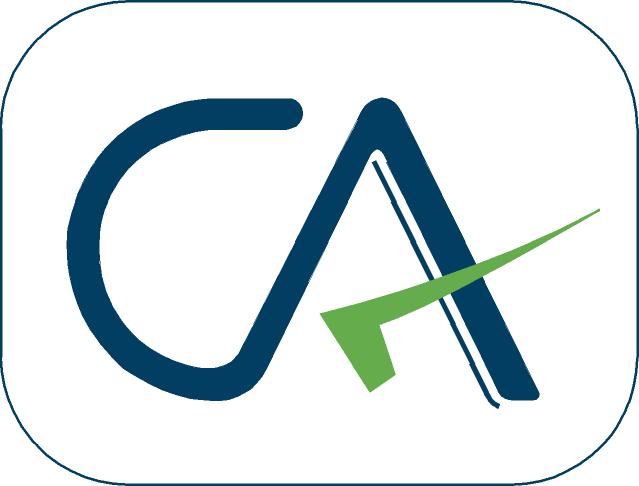As we have seen the Volatile Automotive Market in 2019 and with many Tech changes coming up in the coming years in the Auto Industry. Auto Insider reached out to CA Gurjot Singh a Practicing Chartered Accountant in New Delhi for knowing what had been the Impact of GST in the past and what could be in the future on the Auto Industry,
Mr Gurjot Singh shared his views in an Exclusive Interview by Auto Insider’s Editor-In-Chief Mr. Ravdeep Singh Chadha
Please give us a brief introduction about yourself?
Well, I’ve been fortunate enough to be a part of the brigade whose count is merely 2.82 Lacs among the total population of our country, a Chartered Accountant!! We’ve been involved in working for clients from almost every industry in terms of transaction Advisory, Litigation and Compliance for direct as well as Indirect Taxes.
How many years have you been practicing? And how many team members are working as of now?
We’re going to complete 4 years of our practice starting 2020. My overall experience in this Industry goes to more than 8 years. We’ve got a team of 8-10 highly trained staff Members and Professionals
What are your expectations from 2020?
In terms of economy and the country as a whole, I’m expecting 2020 to bring a series of reforms for GST and other policies. As we’ve almost covered 2.5 years since GST has been implemented, our government has taken care of various hardships being faced by businesses and taxpayers due to various issues in the GST law itself and trying to remove those flaws by way of various circulars, notifications, etc. Apart from GST, I’m expecting the Government to move its focus towards economic stability and development rather than other political agendas.
How do you see the Current Status of the Indian Economy?
Well, going by the numbers, GDP continued its downward trend for the 7th consecutive quarter falling to 4.5% in the second quarter of the year 2019-20, having an incremental fall of 0.5% compared to the last quarter of the year. The current government assures us of setting the base for $5 trillion economies along with foreign investments from interested nations whereas the GDP figures indicate situations worse than 2008-09 levels when the US triggered recession ultimately wiped out more than $2 trillion in terms of global economic growth potential. In short, a Slow down is evident upsetting many aspects of the Indian economy, affecting various business sectors. The Automobile sector, the fourth largest sector in the world, is facing dip for the last 10-12 months factoring in declining demand, resulting in a worrisome slowdown. To end with, India’s economic growth slumped to an over six-year low of 5% in the first quarter ended June this fiscal due to slower consumer demand and private investment amid deteriorating global environment.
What are the current trends and challenges in the Indian Economy?
The real challenge for our Indian economy is getting back on the Economic Stability and Initiation of the growth phase. Further adding to it, our Nation needs to overcome issues like weak foreign as well as domestic investments in infrastructure and heavy industries, muted monetary transmissions, and slow GST collections. The Current government needs to come out with radical and robust reforms in various policies, not only promoting the agenda of ease of doing business but bringing ease in actual terms to the business owners and entrepreneurs. In my view, the way our government has promoted and encouraged the entrepreneurs and startups to come out and display their work to the world by way of bringing various Startup schemes under various government bodies and growth accelerators, the same has not gone too much favorable for those entrepreneurs. Our government and ministries needs to understand that it’s the need of the hour to simplify the complex compliance and licensing procedures as it is very difficult to run even a small company. Moreover, since the last 3-4 years, many financial frauds, bad loans, and bankruptcies have come out in the open, which has put the bankers and government under tremendous stress and pressure. I consider it the major challenge to streamline and wash away the dirt spread through these transactions and improve the reputation globally as a welcoming nation to the Multinationals.
How does GST impact the Indian Automotive Industry?
The Automobile industry ranges from a Two-wheeler to Four-wheeler going forward with Heavy Commercial vehicles. However, as the whole world has already started creating infrastructures and engines for the future of electric vehicles, India can now be seen as well heading towards electrification, albeit slowly. Talking about the impact of GST on the Automobile sector, in the Pre-GST regime, there were several taxes applicable to this sector like VAT, Excise Duty, sales tax, Infrastructure Cess, Entry tax/Octroi, etc which are now subsumed by GST. The taxes on all Automobiles except Electric cars are levied at a base rate of 28% and an additional Cess based on factors like dimensions, engine size, and ground clearance. Earlier the taxes suffered from cascading effect leads to an increase in product prices. But post-GST regime, product costs are substantially reduced due to seamless ITC across the supply chain, i.e., from manufacturer to supplier to agent and to the final buyer. With the elimination of CST, companies are not required to maintain warehouse and C&F agents at multiple state points. The Warehousing infrastructure could be clubbed and lower the operating costs in the supply chain. Thus, overall impact of GST on Automotive sector is positive, however, now the reader of this Interview must be having doubts that how everything can be positive post-GST regime for this largest section, then I’d like to share that whenever a statute is implemented, it has it’s own pros and cons, thus, undoubtedly, this sector has faced and will face certain issues based on practical implementation of the act among the sector, which consists of reverse charge mechanisms towards heavy transportation costs incurred by manufacturers and dealers, practical difficulties in issuing E-way bills, valuations, classifications, etc. Just to make it simple, one example which can be seen in reality is the general practice of the service centers of almost all automobile companies to issue free washing/services coupons & warranties due to the competition in the industry among the players, these transactions were not chargeable to tax in Pre-GST regime, however, they will be subject to taxation under the current regime. Thus, the impact cannot be summed up in just a mere interview, but I tried my best to throw the light which we see practically.
What major challenges do you see in the Indian Automotive Industry based on today’s economic trends?
It is without a doubt that the automotive industry is one of the developed industries in India, however, that does not avoid it from fraught with challenges. We need to understand that every industry is a part of the country and it runs by way of consumption by the masses, the automotive sector is the same. As the GDP is not at its very best and wealth creation is really slow, it would certainly impact consumption, thus it impacts on car sales are visible too. Moreover, upon the ruling of Honorable Supreme Court, only BS-VI cars will be available for sale post 1st April 2020, it has lead to panic among the manufacturers those have already incurred costs to manufacture vehicles under BS-IV and stocked up the inventories in its warehouses and godowns based on their regular forecast. Talking of the consumers, prospective car buyers of current BS-IV are worried about the resale value of their BS-IV cars in the foreseeable future, thus, the buyers are holding the buying decisions and are restraining themselves to go ahead and spend on their favorite rides.
The Automotive Industry expected the Government to Cut GST Rates but that not happened. What could the reason?
In the 37th council meeting held at Goa, automobile as a crucial sector was expecting rate cuts amid the ongoing economic slowdown, however, much was not served on the table. Only passenger vehicles of engine capacity 1500 cc in case of diesel, 1200 cc in case of petrol and length not exceeding 4000 mm designed for carrying up to 9 persons attract compensation cess of 1% for petrol and 3% for diesel vehicles. Council recommended the same compensation cess rate for vehicles having these specifications but designed for carrying more than 10 persons but up to 13 persons, presently these vehicles attract compensation cess of 15%. The reason for not giving the industry a rate cut as the states are not in favor of rate cuts from this sector as it fetches higher revenue for them. The fitment committee of GST rejected the proposal of such a rate cut on the ground that the decision would lead to a revenue loss of Rs. 40,000-50,000 Crores, which is indeed a huge number.
What are your key highs and key lows?
In respect of my Professional career, key highs are when we see ourselves to add value to the businesses, economy, and society as a whole. Until and unless you’re not providing any value to someone, it’s actually making fool of yourself and others who trust you. Obviously life is not only about high and upward trends, thus key lows are there to keep you balanced and identify weaknesses. My key lows are when I feel the actual results of me and my team members in comparison to the vision and expectation I had, so we start working to plug it.
What motivates and inspires you the most?
Nothing is more encouraging and motivating than seeing the ideas and innovations happening around. To talk about, the whole future will be about Artificial Intelligence, Blockchain, and other emerging technologies. By blockchain, I’m not talking about bitcoins and other digital currencies, but technology as a whole. This stuff happening around makes you work more to know about it and learn so that you’ll be able to reap the opportunities, whenever they come your way! Moreover, with the new ideas emerging day to day by young entrepreneurs all across the globe, it keeps me motivated to grow exponentially along with my team.
Name three people who inspired you in your life?
My parents, My wife & My life-mentor Mr. Ramesh Sardana & Last but not the least My Profession.
What is your suggestion for the Newly qualified CA’s who are just deciding to go for a Practice or a Job?
I would advise them to definitely come in the ocean and sail their own entrepreneurship, whether it’s a practice or any business opportunities they come across. However, when looking to set up a practice, try to associate with someone who’s already having a rich experience running a practice. But I would certainly advise that being a chartered accountant, keep your mind open for every opportunity that comes your way and never shut your mind or be stringent about working in this career lifelong. One should be able to take risks in a calculated way keeping in mind the current responsibilities. So concluding, it’s always better to start early and start young!






